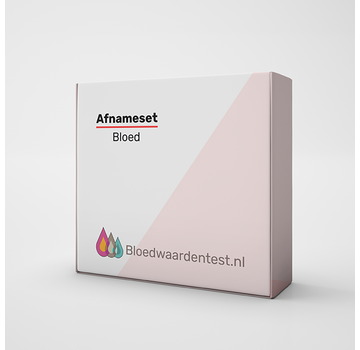Diseases
Blood tests for disease prevention and early detection. Identifies risks, promotes early treatment and improves quality of life.
Hepatitis C DNA RNA PCR test qualitative
Hepatitis C DNA PCR test is the fastest and best detection shortly after a suspected infection
-18% Sale
169,- € 139,-
Babesia microti IgG
Frequent exposure to ticks during the active season (March to November) for hunters and forest workers poses a risk of contracting...
€ 63,-
Continuous blood count microscope not to be ordered separately
If abnormalities are found in an initial run of the blood count, it is possible to request manual leucocyte differentiation
€ 19,50
C4 complement factor
C4: This test is requested by foreign doctors during fertility treatment. This test is done when complement deficiency or complement-binding immune reactions are suspected
€ 25,-
Legionella legionnaire's disease
Legionella blood test when suspecting a recent infection Legionella pneumophila IgM and checking for an old Legionella infection. Read more here.
€ 59,-
Hepatitis E
Hepatitis E occurs worldwide including in the Netherlands. The symptoms of hepatitis E are similar to those of hepatitis A.
€ 119,-
Galactokinase
Galaktokinase in Erythrocytes may indicate Galactosemia, a rare congenital metabolic disease
€ 120,-
Borrelia IgM and IgG Blot Confirmation Test
This test is done as a confirmation of a positive Borrelia antibody (IgG) in the diagnosis and evaluation of the course of a Borrelia infection in the ...
€ 129,-
Gliadin IgA
Gliadin is a gluten protein that can trigger intestinal inflammation (including celiac disease and Crohn's disease) and contains the most exorphins.
€ 29,-
Varizella zoster virus IgM
Varicella-zoster virus (HHV-3) IgM at initial infection (serum). Shingles results from local reactivation of varicella-zoster virus.
€ 45,-
Q fever Coxiella Burneti Chronic
This test is used when there is a suspicion of an old infection that has become chronic.
€ 87,-
Dog Worm
The and dog flush worm and is a fairly long and parasitic and roundworm and that occurs in the intestines dogs.
€ 35,-

Antibodies blood test
We can often determine an infection by a blood test. A blood test will determine whether there are any antibodies in the blood. This is because the human immune system produces antibodies to fight the virus.
Blood tests can help detect and diagnose various diseases and conditions such as:
- Diabetes: Blood glucose measurements can diagnose and monitor diabetes.
- Anemia: Measuring hemoglobin and iron levels can identify anemia.
- Liver disorders: Liver enzymes and bilirubin levels can reveal liver problems.
- Infections: Detecting infection-related markers, such as white blood cells and C-reactive protein, can help diagnose infectious diseases.
- Kidney disease: Creatinine and urea levels in the blood can signal kidney problems.
- Heart disease: Lipid profiles can assess the risk of cardiovascular disease.
- Autoimmune diseases: Specific antibodies and inflammatory markers can reveal autoimmune diseases.
Blood tests to detect diseases before you have symptoms are often used preventively or as a screening tool.
What does this make sense for?
- Early detection: Some diseases can be difficult to recognize early on because of the lack of symptoms. Blood tests can identify subtle abnormalities in markers or substances that may indicate incipient disease. Early detection can increase the likelihood of successful treatment or be reversed through lifestyle modification.
- Risk assessment: If you are at increased risk for certain conditions because of genetic factors, family history or lifestyle, preventive blood tests can help identify potential problems before they develop so you can make timely lifestyle adjustments.
- Preventive measures: Early detection of risk factors, such as elevated cholesterol levels, can lead to preventive measures such as diet and lifestyle modifications, reducing the risk of cardiovascular disease.
- Monitoring chronic conditions: For people with chronic conditions such as thyroid, diabetes or kidney disease, regular blood tests can help manage the disease and prevent complications.
- Quality of life: Early detection and treatment can improve quality of life and reduce treatment costs by preventing serious complications. This can ensure longer healthy lives.
Preventive blood tests are usually performed based on guidelines and recommendations from health care professionals, taking into account the person's individual risk factors and medical history. It does not guarantee detection of all diseases, but it can be a valuable tool for early detection and prevention. Discussing preventive blood testing with a physician can help determine which tests are appropriate based on individual circumstances.
you can request a consultation for this: with our lifestyle doctor: telephone-consult-doctor-gael-smits.html
or with the colon therapist: /consult-bowel therapist-dr-ir-schantl.html













